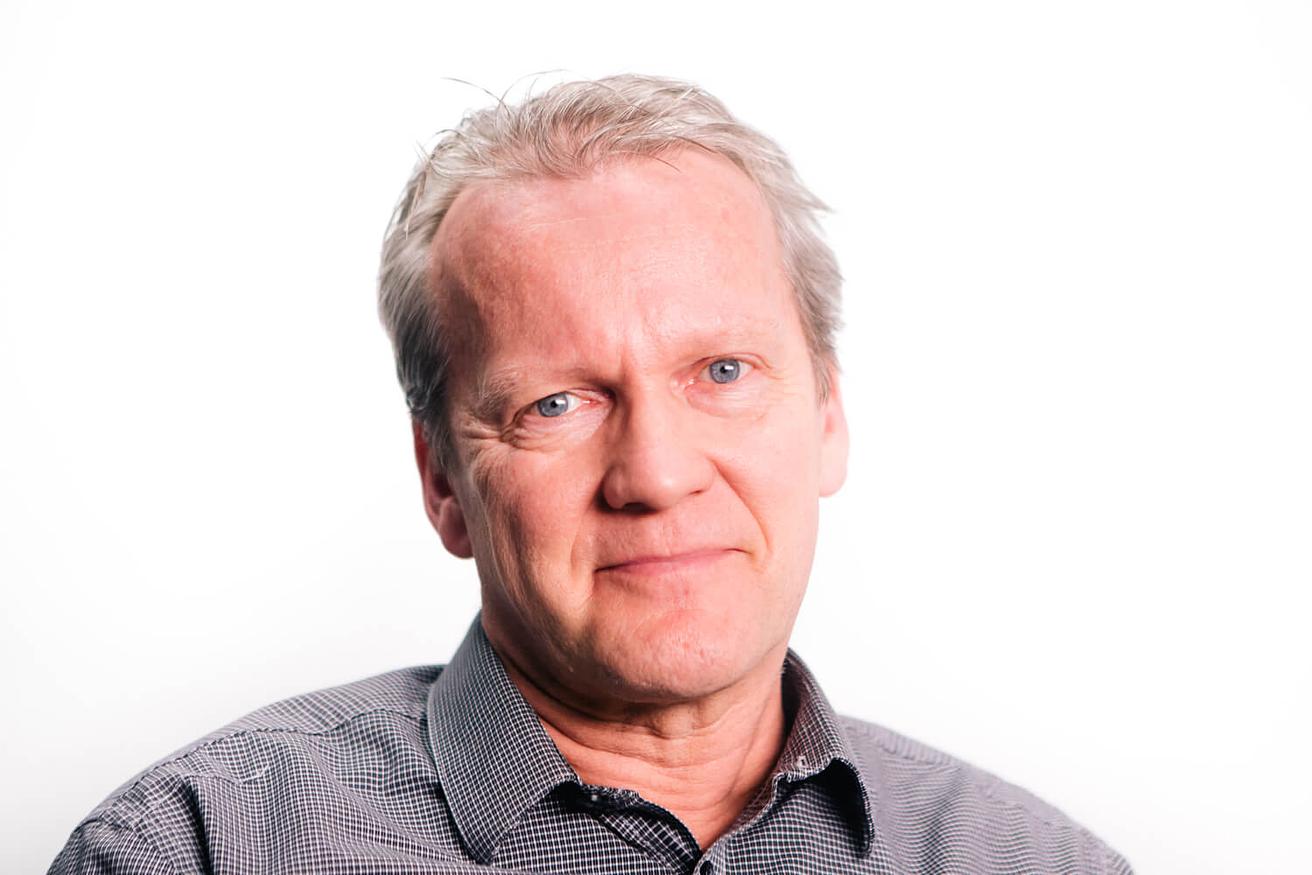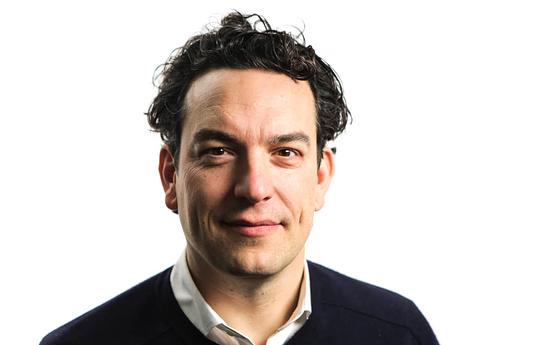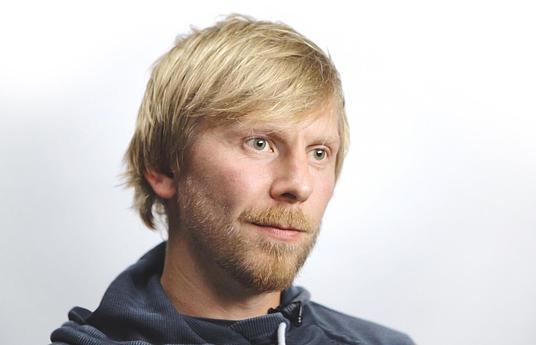Pasi Sahlberg
Pasi Sahlberg is Visiting Professor at Harvard University. Sahlberg has worked as a teacher, a researcher, a mentor and a political advisor. His expertise in the field of education covers systems, reform and classroom teaching. Sahlberg has toured the world lecturing on education and has published a variety of articles and books.
Skills
Do you believe that school adequately prepares students for the workforce?
That is a good question. Do we know what the future workforce will look like?
Typically we have been focused on preparing young people for the labor market, - 'market' being the primary word here as they will be the ‘consumers’ of the labor market. They have to have the knowledge, skills and readiness to find a job that they want to do. We haven't put as much thought into thinking: ‘how can we raise them into labor creators?’
I fear that the future labor market will have significantly less employers than we're used to. More and more young people will struggle to find a job suited to their education and skills.
As the world keeps changing, education should provide young people with the necessary skills to create work for themselves and others, rather than encouraging them to remain as consumers.
Students still graduate with the mentality that they have to look for jobs they might be suitable for, and that they will be in trouble if they can't find work. Instead, the mentality should be: if you don’t find a job that suits you, you create one for yourself.
Teachers
What are the key challenges for teachers?
In Finland, the teaching profession has changed and is changing quite rapidly. One reason for this is that we currently have a lot of students and families in Finland from diverse backgrounds that have begun to get accustomed to the Finnish school culture and society. When I started teaching, all the students spoke Finnish as their first language, came from the same religious background and behaved in a very homogeneous way.
Firstly, one of the challenges teachers in Finland face today, especially in the capital and surrounding areas, is that some students in class are accustomed to a different way of life and may not have the skill sets that are expected in our schools.
Secondly, the structure of Finnish society is changing and inequity is on the rise. We know that more and more children in Finland live in poverty or come from broken homes. All this affects teachers. I believe in supporting teachers and giving them the time to deal with these challenges so they can face them in an appropriate way.
The third challenge is the insecurity teachers feel in terms of their profession and the future of teaching as well as the future of their students. These things can be seen in the classroom on a daily basis and should be taken into consideration as we work towards reforming education and related policies.
Assessment
How should pupil evaluation and assessment change?
Finland is a leading country in pupil assessment. We have faith in the assessment done by teachers, but also increasingly in the self-assessment of students - something that is still underestimated globally.
The global trend seems to be externalising assessment. This means either a corporation or an organisation assesses how students have learned certain subjects. I think the world should explore Finland’s education system and policies on trusting teachers with pedagogical freedom and students with self-assessment. They know best what they have learned and how well.
I believe the Finnish system is a good solution compared to the other Northern European countries who have radical additions of standardised testing in school - this leaves no room for creativity and teachers are trusted less when assessing students. The outcome will be to teach to gain good test scores, which makes learning unpleasant.
What are your views on PISA? Do you feel it is a reliable way to judge how effective a country’s education system is?
OECD began testing with PISA fifteen or so years ago. I think we have come to the point in which education systems, particularly in Finland, should go even further. We should stop focusing on trying to be number one on the PISA table.
Education is much more than being good at reading or math or science. PISA is an indicator of whether an education system is good or not. I believe the future is based on broader concepts. We need creativity, social sciences, arts and music - things that PISA doesn’t measure at all. We need an indicator to assess these things.
Environments
How do you perceive the digitalization of education?
For some time now I have been considering what this actually means - digitalizing education. Are we talking about having digital learning material rather than traditional books, with everyone studying from a tablet or laptop? Or will learning be done at home, meaning that students do not have to be physically present in schools?
We don’t really know what digitalization means at this point, so it is a difficult question to address. It is also hard to say if digitalization is a good or a bad thing, and whether or not we should embrace it in education.
There was a recent study which found that our brains are plastic muscles that can adapt to all kinds of situations and circumstances. According to some estimates, about half of our K-12 students are massive consumers of internet and social media. They typically spend three to four hours in front of a screen per day. I find researching the physical or structural changes in the brain interesting in the age of information. Young people don't read books anymore, they read internet text with lots of hyperlinks.
The first findings in this research suggest that the use of the internet, and especially reading hyperlinks, changes the brain. The brain adapts to processing this kind of information and to a rapidly changing action - looking at one thing for ten seconds and then shifting the attention to another. Because of this change in the brain, traditional reading may ultimately become challenging. The amount of students who are having difficulties with traditional reading is on the rise. When this kind of person is given a book, they will read it for five or ten minutes after which they perceive it as boring.
I have a feeling that Finland’s decline in PISA has to do with the time spent staring at a screen. Students’ brains are developing in a way that cannot process information such as learning to read or math.
With these changes in the brain, I wonder if there is any need to continue with traditional ways of behaving in schools. Understanding something deeply will become challenging or nearly impossible if things continue to progress as they currently are. Wouldn’t it make sense then for schools to help students to learn how to process information and develop thinking skills? Processing information was easier and more natural when we still read books and sat around discussing them. We had time to really look into things.
The key question in digitalization is: what should really be practiced in schools? This of course depends on how technology affects people. As I mentioned, my concerns and fears are that the changes in the brain will force us to develop alternative digital methods and practices in schools at some point. When it comes down to this, I would rather have my sons learn thinking skills, empathy, collaboration and the skills to read books and discourse, because my sons are already too engaged with iPads and computers.
I don’t know what other people consider to be the best option for them, but my opinion is clear: if a school wants to teach anything to my sons, teach them to think.
Leadership
What is the purpose of the school?
We like to think comprehensive schools are places in which we prepare young people for upper secondary school or higher education and for life. Until now, this idea has surely been relevant, however I believe we need to re-evaluate the purpose of the school. The world is changing so fast that imparting knowledge is not enough. We can't know what the world they inherit will demand of them.
I feel that the new way of addressing the purpose of school is to think of ways for schools to help students find their passion and unleash their creative skills. In other words, each student should find the flame within, the thing that they are passionate about and they want to do.
This way of thinking is important because in my findings in Finland and abroad, the majority of students graduating from comprehensive school have this notion that they aren’t particularly good at anything specific. They know a lot, but they think they don’t stand out in areas of expertise. Schools should make it their priority to assist each and every student in finding what’s right for them, their passion. Only then will they understand what they are good at, what their talent is, and have the ability to build a life around it. If this issue is not addressed, students will only grow ever more discontent in Finland, and around the world.
What do you feel the key challenges are in the Finnish educational system?
The challenges the Finnish school system is facing are the same as anywhere else in the world, especially in other Northern European countries. They have a lot to do with the fact that our educational system is based on the needs of industrialism. In practice this means that children of the same age sit in classes of twenty-five students learning at the same pace. Teachers teach without considering whether the students are interested in the curriculum, which is designed by adults.
Of course we need the curriculum, students need to learn to read and write and understand their history, religion and philosophy. However, if the entire logic behind all this is to produce learners as though they are on a conveyor belt, there will be no personalised learning paths.
Some speak of a paradigm shift in which all learning, teaching and logic skill adaptation should be altered. Schools should be a place where each student can study things that interest them and are important to them. Through this, the individual learner will blossom into the active citizen that wants to keep on learning.
Personal memory
What is your favorite moment from your own education?
I'm probably the typical Finnish teacher that decided upon the profession because I only have a few good school memories. Most of my school experiences growing up weren't that nice. I remember thinking at some point that I could become a teacher myself and prove that things can be done in a different way.
Of course I had a lot of teachers that were quite good, and I have fond memories as well. My father was one of my first teachers in elementary school.
If I take this question literally, I would say my best school memories are from a time when I was teaching at the teacher training school, Normaalilyseo, in downtown Helsinki. As a young teacher, your head is full of ideals and the need to improve. The best experiences were realizing that after a class you had been able to teach the students something that was difficult for you yourself in your own schooling. I taught math and science. Almost every day a student would come to me and tell me that they didn't understand the subjects at all.
I also remember an extraordinary school memory from a time in January when it was extremely cold and we had Science Week at Normaalilyseo school. A group of us teachers were thinking of ways to teach scientific phenomena in physics and chemistry concretely, so that they could see what it is really about. We placed a massive barrel filled with water in the school yard. I was voted to go into the barrel in swim shorts for all the students to witness. By doing this, we could demonstrate how much water flows out of the barrel and so would be able to calculate the volume of a person.
Back then I thought it was funny, but even after twenty years I still run into students from that period of time who remember the experiment. I always ask if they remember why we experimented this way and what volume means - they always do. It's moments like these when I realize teaching consists of a lot of fun, intriguing things that have a permanent impact on students' memories.
The next 100 years
The next 100 years of Finnish education should... proceed towards understanding the strong potential that children and young people have - the most important purpose of school, globally, is to guide each student to find their potential and make use of it.
In the next 100 years, I hope schools everywhere work in a way that encourages each individual to find their passion, the flame within, and through that are able to change their lives and the world. Because without this there will be no change.


